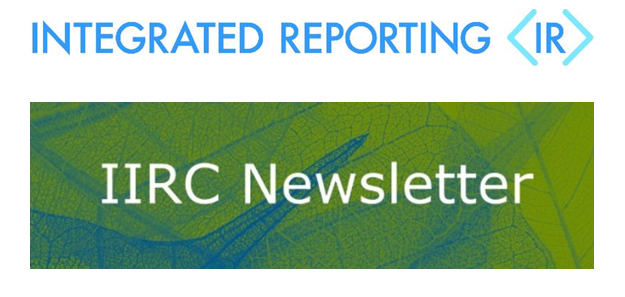Exclusive discount for IIRC newsletter subscribers to attend IIRC Global Conference
Subscribers to the IIRC newsletter are being offered a 20% discount for the IIRC’s Global Conference, to be held virtually from 30 November – 2 December 2020.
Over the course of the three days, the conference will offer an exclusive review of the results of the <IR> Framework revision consultation and the latest insights into the future of the corporate reporting landscape, including plans for a holistic reporting system.
Edging ever closer to a holistic, robust corporate reporting system
There has been real movement over the last six months to drive a new, cohesive, holistic reporting system that responds to market needs.
The IIRC’s focus is on ensuring the principles of integrated thinking and reporting are embedded into a comprehensive and international system that can drive the most robust and effective reporting possible.
We are working closely with all of the major players in this space to drive this ambition and believe that there is now a real opportunity for this to be realized, with cooperation and collaboration growing quickly on all sides.
This article shares some of the latest initiatives and thinking in this space and the role of the International Integrated Reporting Council within each.
Reporting in a time of crisis
The Integrated Reporting Committee of South Africa has issued a paper setting out how integrated reporting can be utilized to report effectively during the COVID-19 pandemic, when organizations may be called on to include additional information in their corporate reporting, such as specific financial information and governance considerations. Through an integrated report organizations are able to share their thinking and decisions with stakeholders during this unprecedented time.
The paper outlines how the International <IR> Framework can be used as a tool for transparency to reflect balanced and complete reporting, where to report on these issues and how to reflect the effect of the pandemic on stakeholder relationships.
Integrated thinking in action: A spotlight on ABN AMRO
One of the Netherland’s leading banks, ABN AMRO, has been engaging with integrated thinking, shaping their business model and strategy through it since 2014.
ABN AMRO identified the importance of a value creation strategy, which focuses on financial and pre/non-financial drivers that affect and are affected by the bank, such as manufactured, human and intellectual.
By creating a Corporate Integrated Thinking Community within their organization, ABN AMRO has created a more collaborative culture and transparent reporting. This in turn has led to an increased focus on their clients and stakeholders, ultimately fulfilling the bank’s purpose of creating ‘Better Banking, for Generations to Come’.
This approach is especially relevant with the implications of Covid-19. Similarly, reassessing their process every two years ensures a renewed focus on creating value over the short, medium and long term.
Read the case study in full to find out more about ABN AMRO’s motivations, approach and success in reaching their purpose.
Investors call for accounting for climate change
Investor representatives from around the world, including Principles for Responsible Investment (PRI) and the United Nations Environment Programme Finance Initiative (UNEP-FI), have written an open letter setting out the investor demand for companies to ensure their financial reports are prepared using assumptions consistent with the Paris Agreement on climate change.
The group, which represents over US$103 trillion in assets under management globally, has come together to urge that corporate reporting appropriately reflect climate-related risks, and help support the undertaking in the Paris Agreement to make financial flows consistent with the pathways towards climate resilient development.
The letter, which is consistent with the IIRC’s call for integration and connectivity of information, particularly in regards to reporting on major sustainable development factors such as climate change, can be read on the UN PRI website.

